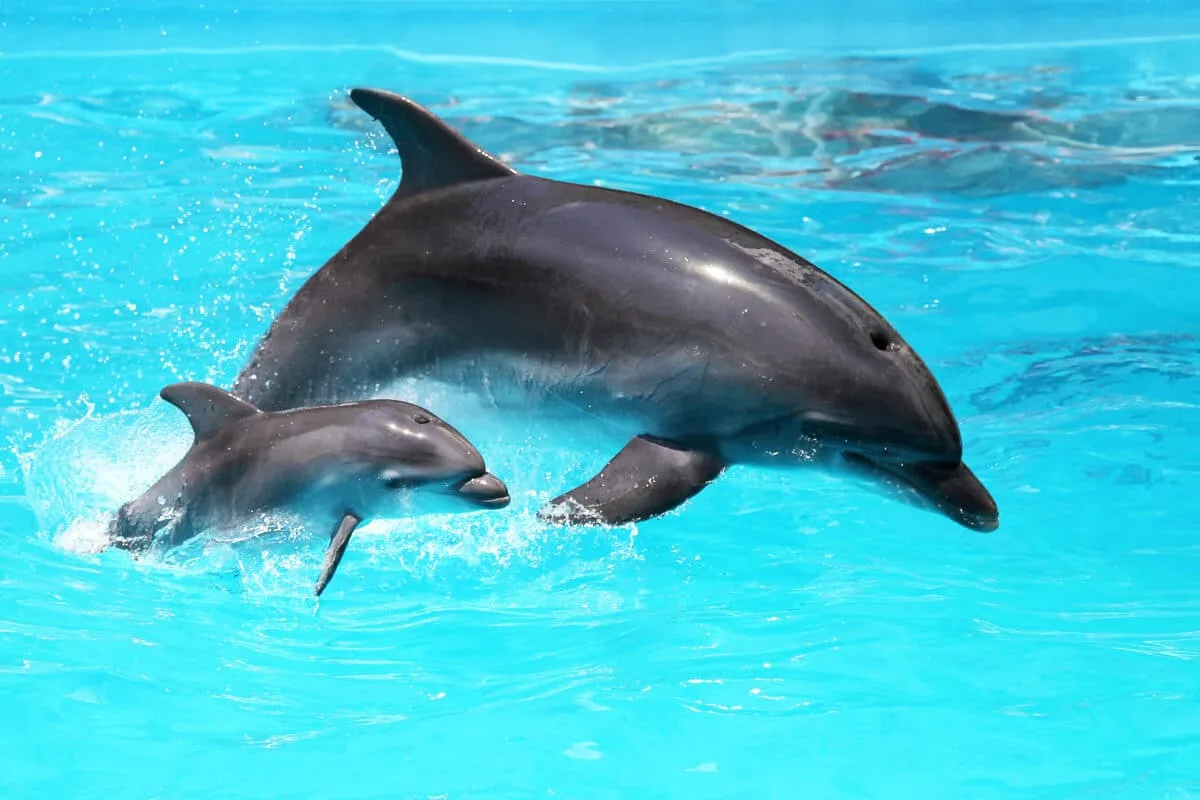When you dig into the aquatic world, dolphins and Michael Phelps come to mind. He is widely recognized as the most accomplished Olympian ever, boasting an astounding 28 medals.
His exceptional swimming abilities have solidified his status as a true legend in the sport. Join us as we delve into the remarkable journey of this extraordinary athlete, discovering the immense talent and unmatched dedication that has propelled him to unparalleled success in the pool.
But what if we were to pit him against another master of the water? What if Phelps went head-to-head with a dolphin, known for its speed and agility in the ocean?
This article will answer an exciting question: Who’s faster, Michael Phelps or a dolphin? We’ll investigate the stats and facts surrounding both competitors, examining who would win in a race and what makes each unique. So strap on your goggles and dive in with us as we explore this fascinating hypothetical matchup!
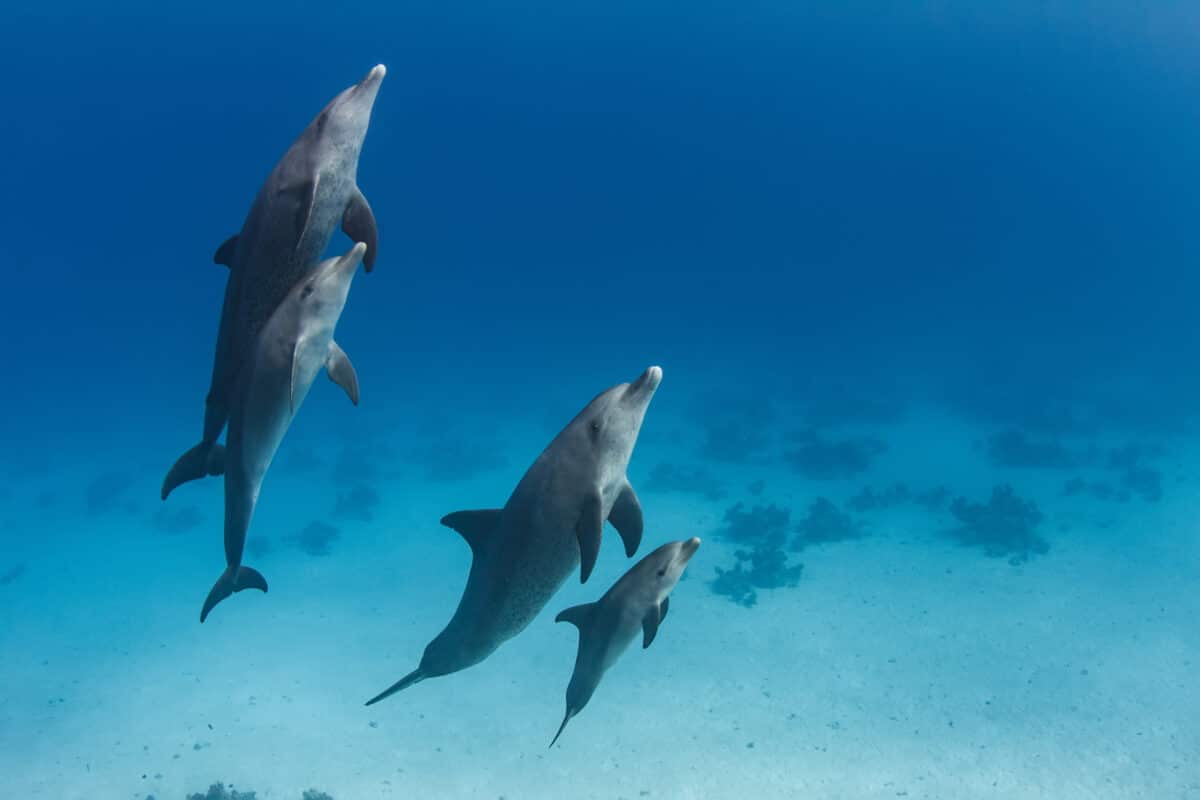
Jump ahead to any section ahead!
Comparison Table
| Attributes | Michael Phelps | Dolphin |
|---|---|---|
| Speed | Very fast swimmer | Extremely fast |
| Agility | High | Exceptional |
| Endurance | Excellent | Limited |
| Physical Attributes | Tall with long limbs and large lung capacity | Sleek body, strong fins, and tail |
| Training and Technique | Extensive training, precise technique | Natural swimming abilities, adaptability |
| Communication Skills | Verbal and non-verbal | Clicks, whistles, and body language |
| Preferred Habitat | Water (swimming pools and open water) | Oceans and rivers |
Michael Phelps: Stats And Facts
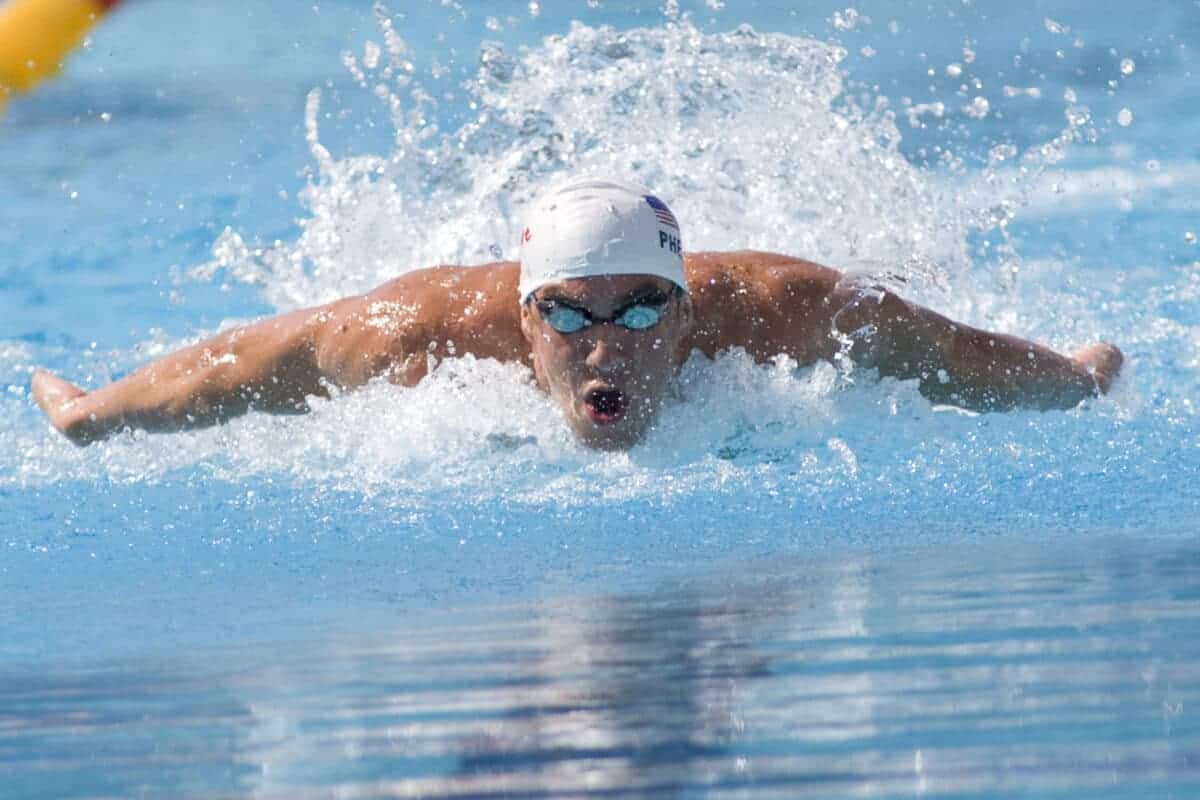
Michael Phelps is undoubtedly one of the greatest swimmers ever. He has 28 Olympic medals, 23 of which are gold. Phelps first made his mark on the Olympic stage in 2000, when he competed in the Sydney Olympics at just 15. He won no medals at this event but dominated the sport for many years.
Phelps competed in his last Olympics in 2016, winning five more gold medals and one silver, bringing his total medal count to an incredible 28. His total medal count is more than double that of the second most decorated Olympian, Larisa Latynina, who has 18 medals.
Phelps’ Physical Attributes
Phelps’ incredible swimming career can be attributed, in part, to his physical attributes. He stands at 6’4″ tall, with a wingspan of 6′ 7″. This gives him a clear advantage in the water, as his long limbs create more propulsive force. He also has a relatively short torso and long legs, which helps to decrease drag in the water.
But not just Phelps’ height and wingspan give him an edge. His lung capacity is 12 liters, double that of the average person. This means he can take in more oxygen, enabling him to power through the water for longer. Phelps’ flexibility is also important. His range of motion in his ankles allows him to swim with a straighter kick, which minimizes drag.
Phelps’ Body Is Built For Swimming
Phelps’ physical attributes are not the only reason he is a great swimmer. His training regime also plays a huge role. Phelps has trained for hours daily, focusing on techniques and endurance. He has also worked to increase his strength and power, which helps him to generate greater force with each stroke.
Notably, Phelps has a unique level of muscle control, allowing him to manipulate the water precisely. He also has a lower body fat percentage than most people, so there is less drag when he swims. With all of these factors in play, Phelps has been able to set numerous world records and dominate the sport of swimming for many years.
Watch Michael Phelps – All EIGHT Gold Medal Races at Beijing.
The Dolphin: Stats And Facts
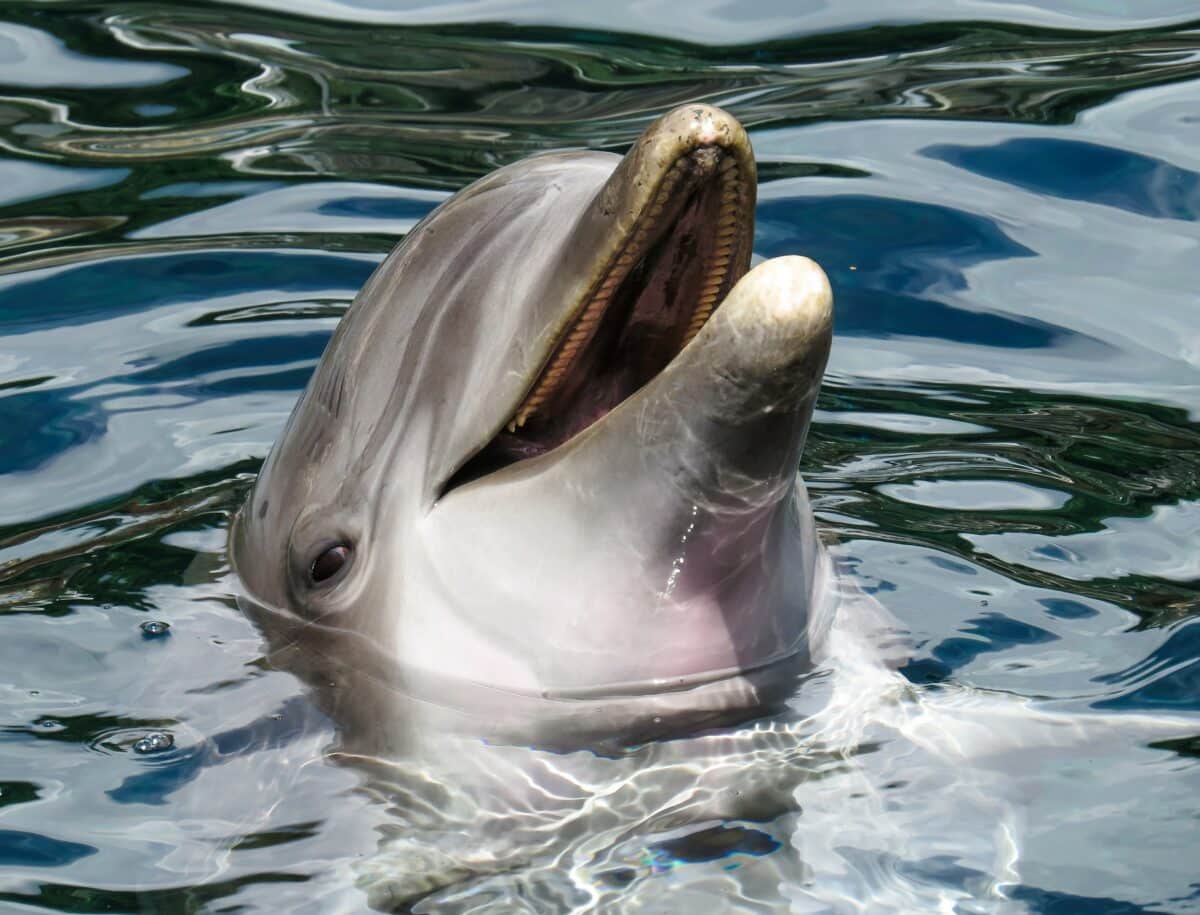
As we continue to explore the hypothetical matchup between Michael Phelps and a dolphin, it’s important to understand the stats and facts surrounding our aquatic competitor. Dolphins are known for their sleek bodies, unparalleled speed, and incredible agility in the water.
Habitat
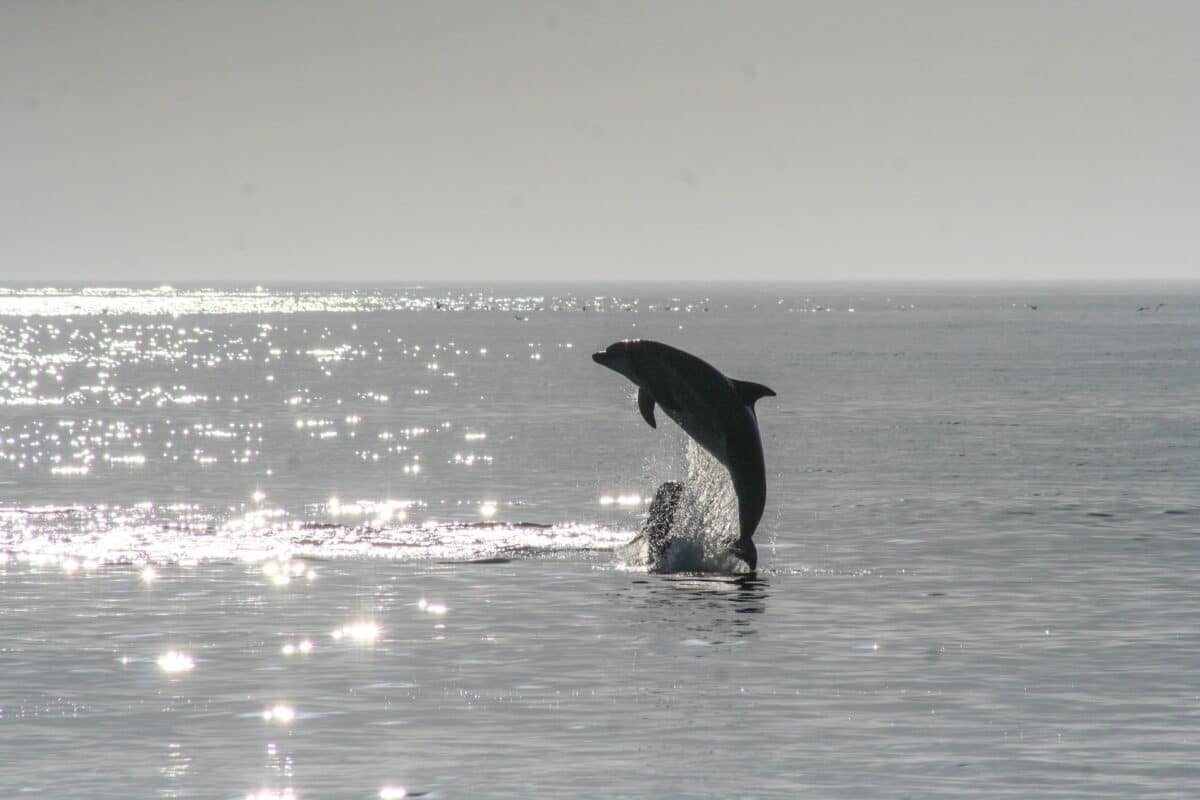
Dolphins are highly intelligent marine mammals that are found in oceans and rivers throughout the world. They come in various sizes and colors, ranging from the tiny Hector’s dolphin, which is only about four feet long and weighs around 90 pounds, to the massive orca, which can grow over 30 feet long and weigh up to 22,000 pounds.
Most dolphins live in saltwater habitats, although some are found in freshwater rivers. They are known to be extremely social creatures, often traveling in large groups called pods. In addition to their intelligence, one of the most notable features of dolphins is their communication skills – they have a complex system of clicks, whistles, and body language that they use to communicate with each other.
Swimming Abilities
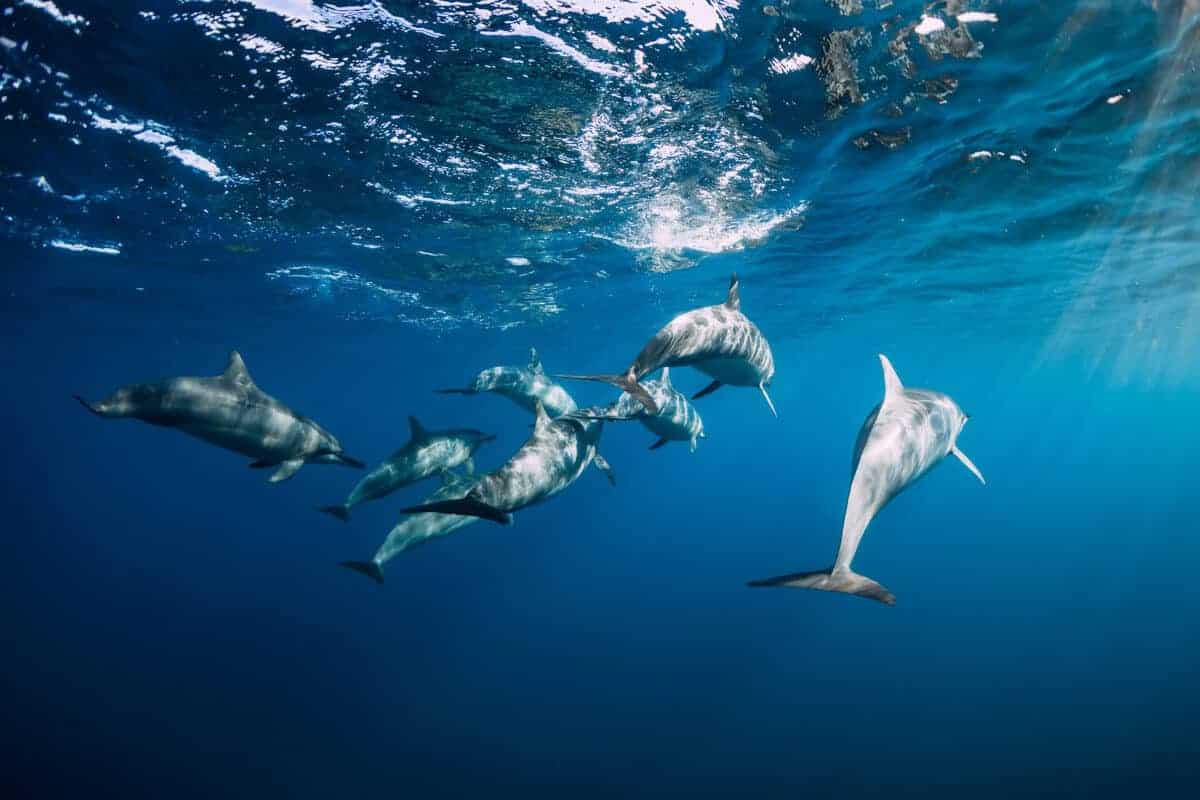
Regarding swimming, dolphins are some of the most impressive creatures on the planet. They can swim at incredibly high speeds, with some species capable of reaching speeds over 60 km/h (37 mph).
Additionally, dolphins are incredibly agile in the water, able to turn and change direction quickly and easily. They can also glide through the water, using their natural currents to conserve energy as they swim.
Evolution And Adaptations
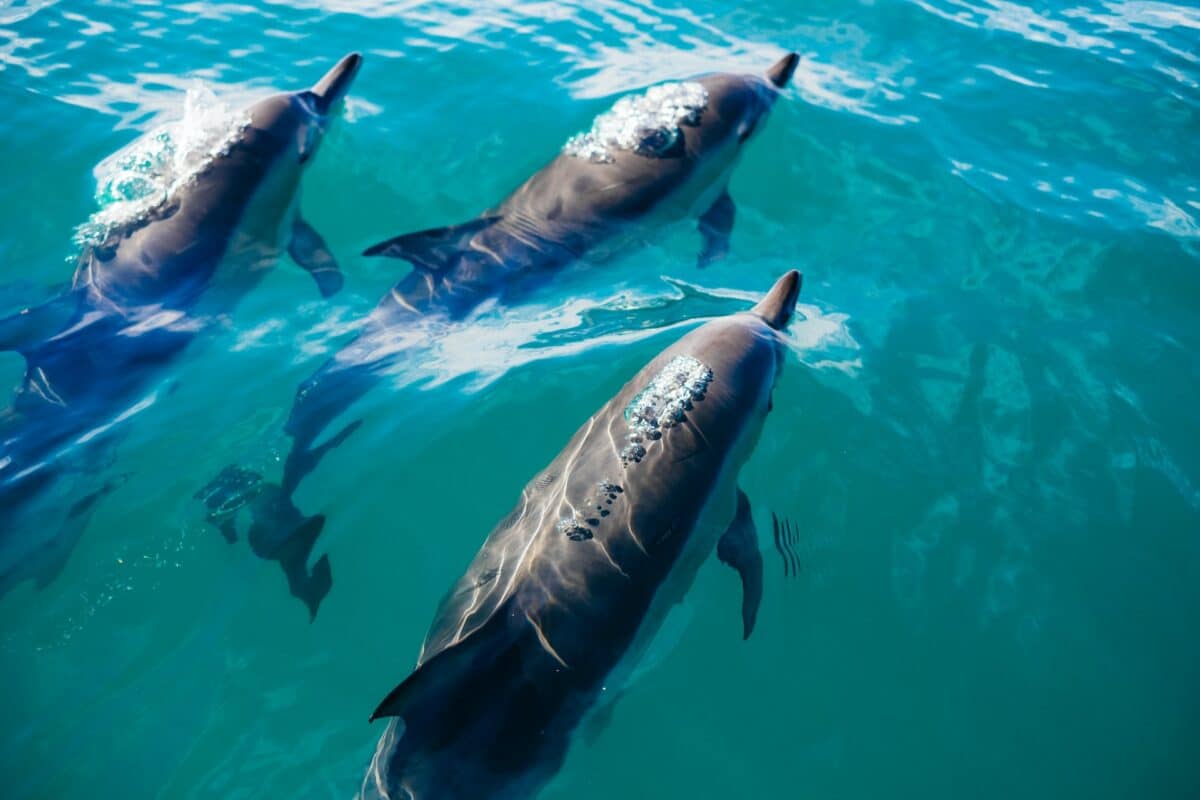
Over millions of years, dolphins have evolved to be perfectly suited for life in the ocean. Their sleek bodies and streamlined shape help to reduce drag as they swim, while their smooth skin helps them to move more easily through the water. They also have a specialized system of muscles and tendons that allows them to swim with incredible power and efficiency.
In addition to their physical adaptations, dolphins also have several unique behaviors that help them to survive in the ocean. They are known to work together in hunting and feeding, using their intelligence and communication skills to coordinate their efforts and increase their chances of success.
Race Comparison
About a race between Michael Phelps and a dolphin, we first need to establish a hypothetical course for the race and how it would be timed. A traditional swimming pool wouldn’t be sufficient for our dolphin competitor, as it needs more space to maneuver and showcase its full potential. A 50-meter course in the open ocean would be more fitting, where both competitors would swim side-by-side toward the finish line.
As for timing, Phelps would use his trusted starting block, while the dolphin would be given a fair head-start since it’s more agile in the water.
Comparison Of The Strengths And Weaknesses Of Each Competitor
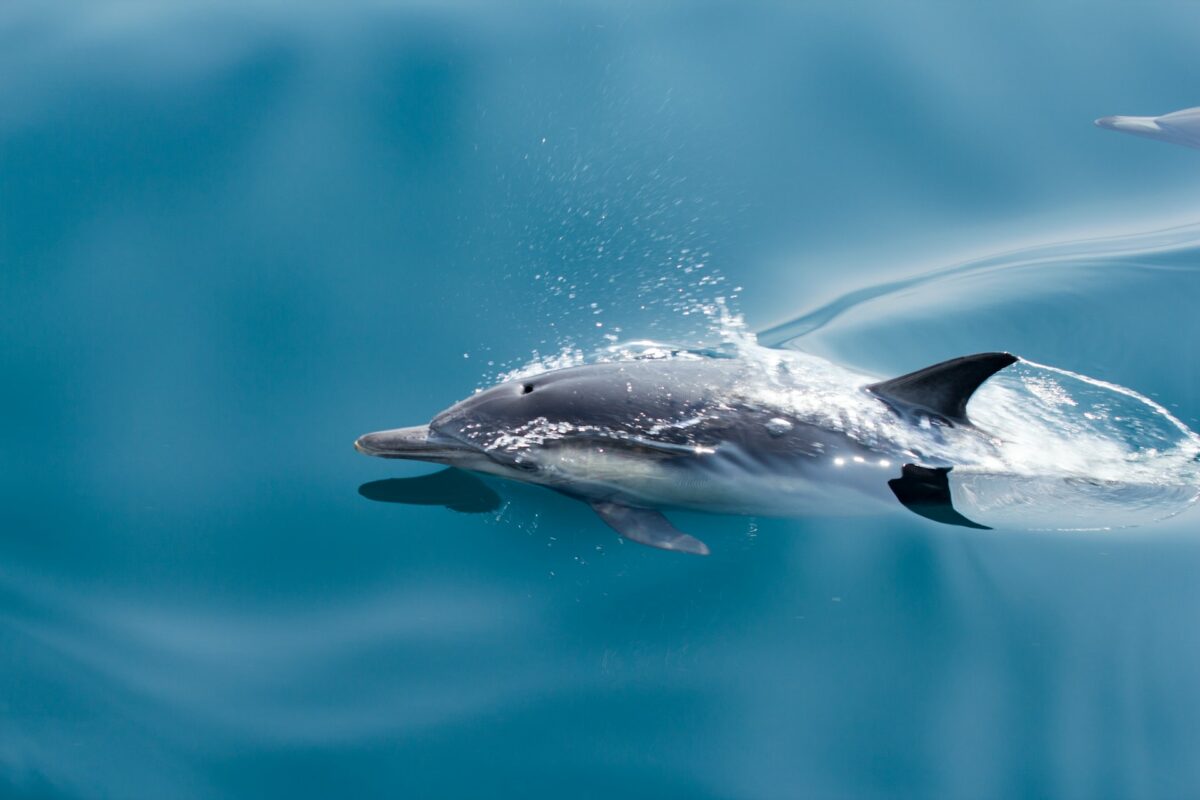
Michael Phelps is an incredible swimmer with talent, speed, and endurance unmatched by most other humans. He holds numerous world records in swimming and has represented the United States in five Olympic games.
He has powerful arm strokes, pin-point precision turns, and masterful breath control. He’s also well known for his competitive spirit and ability to stay calm under pressure.
When it comes to our dolphin competitors, they are some of the most remarkable creatures that exist in the ocean. They have sleek bodies, perfect for cutting through the water with speed and grace. They are also highly intelligent, using echolocation to communicate and navigate through the ocean.
Dolphins can coast through the water with minimal effort, thanks to their streamlined form, strong fins, and tail. On the downside, they can’t swim as well for long periods out of the water, and their endurance may become an issue.
Analysis Of Who Would Likely Win, Based On The Facts And Stats Presented
Now, the moment of truth – who would win in a race between Michael Phelps and a dolphin? As we have seen, Phelps has exceptional swimming abilities that have earned him numerous accolades.
However, when it comes to a head-to-head with a dolphin, it’s hard to say. A dolphin has the upper hand in agility and speed, but Phelps has unparalleled endurance and an expert grasp of technique. If the race were short-distance, the dolphin would likely win easily, as their land speed is about the same as humans, and they can swim much faster than we can.
But, if the race were on the longer side, Phelps would have the edge since he can maintain his pace for longer periods. Therefore, the winner of this hypothetical race would depend on the course length and location – an exciting concept to explore.
Key Points
| Michael Phelps is undoubtedly one of the greatest swimmers ever. He has 28 Olympic medals, 23 of which are gold. Phelps first made his mark on the Olympic stage in 2000, when he competed in the Sydney Olympics at just 15. |
| Over millions of years, dolphins have evolved to be perfectly suited for life in the ocean. Their sleek bodies and streamlined shape help to reduce drag as they swim, while their smooth skin helps them to move more easily through the water. |
| Dolphins can coast through the water with minimal effort, thanks to their streamlined form, strong fins, and tail. On the downside, they can’t swim as well for long periods out of the water, and their endurance may become an issue. |
| About a race between Michael Phelps and a dolphin, we first need to establish a hypothetical course for the race and how it would be timed. A traditional swimming pool wouldn’t be sufficient for our dolphin competitor. |
| Therefore, the winner of this hypothetical race would depend on the course length and location – an exciting concept to explore. |
Closing Thoughts
Imagine a hypothetical race between Michael Phelps and dolphins. Phelps, the renowned swimmer, excels with his strong strokes and ability to swim straight.
Dolphins, conversely, have streamlined bodies, quick direction changes, and speeds up to 60 km/h. Predicting a winner is tough as both competitors have unique water skills. In this imaginative face-off, the suspense lingers, leaving us to wonder who would claim victory in this captivating clash between human talent and the marvels of the sea.
Note: To clarify, it’s important to note the comparison between Michael Phelps and Dolphin is purely hypothetical and does not reflect an actual real-life scenario. It is merely an exploration of their abilities. Hence, their comparison table cannot be made due to a lack of common attributes.
If you enjoyed this article, check out our articles below!
Next up: Discover a Badger Taking on a Fox, The Underdog Fight: Dachshund Confronts A Mountain Lion, and Stealing From The Thief | Rat Takes On A Fox.
Join our Forum for free today!

- Huge Pet Bison Breaks Into House - July 22, 2024
- Giant Black Bear Surprises Beachgoers by Emerging from the Ocean in Florida - July 22, 2024
- Brave Man Plays Instrument While Huge Bear Caresses His Shoulder - July 22, 2024

